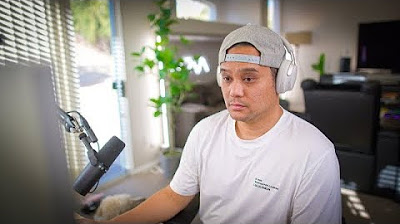YC Startup Talk for Students, 2022
Summary
TLDR这段视频脚本由一位前YC创始人分享,他介绍了自己在不同规模初创公司的经历,并强调了YC如何帮助初创公司起步,包括建立产品、筹集资金和招聘团队。他分享了在初创公司工作的经验,包括快速成长和对业务的深入影响,以及如何选择适合自己的初创公司阶段。此外,他还讲述了YC寻找的初创公司特质,包括对行业的热爱和专业知识,以及如何通过YC的资源和网络帮助创始人成功。
Takeaways
- 🚀 创业者应该加入YC(Y Combinator)这样的加速器,以帮助他们的初创企业在早期阶段获得发展。
- 🛠️ 创业过程中最困难的三件事是:构建产品、筹集资金和组建团队。
- 💼 初创公司倾向于雇佣多面手,即愿意承担多种角色的通才。
- 🔍 初创公司与大公司不同,它们提供更高的可见度和更快的决策过程。
- 👥 在初创公司工作可以快速获得责任和经验,有时甚至超出个人能力范围。
- 🏢 大公司通常拥有更多客户,但初创公司可以更深入地了解和影响客户。
- 🤝 加入初创公司的一个好方法是与创始人建立联系,并找到一个你感兴趣的团队。
- 🎓 对于想要了解初创公司的学生,最好的学习方式之一就是直接加入一个初创公司。
- 💡 YC寻找的创业者特质包括对行业的热爱、领域经验以及快速学习和适应的能力。
- 📈 YC为创业者提供的帮助包括产品构建指导、个性化建议、网络资源和资金支持。
- 🌟 成功的初创公司案例包括Dropbox、Stripe、Airbnb和Instacart等,它们都曾是YC的成员。
Q & A
YC是什么组织,它如何帮助初创公司起步?
-YC,全称Y Combinator,是一个知名的创业孵化器。它通过提供资金、指导和资源帮助初创公司在早期发展,包括但不限于建立产品、筹集资金和组建团队。
Dropbox、Stripe、Airbnb和Instacart这些公司有什么共同点?
-这些公司都是在早期阶段通过YC孵化器获得支持和发展的,它们现在都已成为各自领域的领先企业。
为什么说在初创公司工作可以学到很多关于创业的知识?
-在初创公司工作可以让你亲身体验和参与到创业的各个环节,如产品开发、市场推广、团队建设和决策过程,这种实践经验是非常宝贵的学习机会。
在初创公司工作与在大型公司工作有什么不同?
-初创公司倾向于雇佣多面手,即愿意承担多种角色的通才,而大型公司则倾向于雇佣专家。此外,初创公司的决策过程更快,员工可以看到自己工作对公司产生的直接影响。
为什么说在初创公司工作有低风险?
-相比于成为初创公司的创始人,作为员工加入初创公司的风险较低,因为员工不需要承担公司失败的全部财务后果,同时也能获得宝贵的工作经验。
YC的“Work at a Startup”平台是什么?
-“Work at a Startup”是YC运营的一个招聘平台,它连接求职者和初创公司,帮助双方找到合适的匹配,目前平台上有800多家公司和6000多个职位。
在初创公司工作时,为什么理解业务和衡量影响是重要的?
-理解业务可以帮助员工更好地融入公司,知道如何为公司的发展做出贡献。衡量影响则可以让员工明确自己的工作成果,为未来的职业发展提供有力的证明。
YC在选择支持的初创公司时,最看重什么?
-YC在选择初创公司时,最看重的是创始团队的素质,包括对行业的热爱和专业知识、快速学习和迭代的能力,以及强烈的决心和韧性。
YC提供的500,000美元的启动资金有什么特别之处?
-这笔资金是YC为入选的初创公司提供的无条件资金支持,目的是帮助他们在没有外部压力的情况下专注于产品开发和市场验证。
为什么说在初创公司工作可以为将来自己创业打下基础?
-在初创公司工作可以让员工深入了解创业的各个方面,包括产品开发、市场定位、团队协作等,这些经验对于未来自己创业是非常有帮助的。
YC的校友网络为初创公司提供了哪些帮助?
-YC的校友网络为初创公司提供了一个资源共享和经验交流的平台,包括提供指导、建立合作关系、提供招聘渠道等,这对于初创公司的成长至关重要。
Outlines

Esta sección está disponible solo para usuarios con suscripción. Por favor, mejora tu plan para acceder a esta parte.
Mejorar ahoraMindmap

Esta sección está disponible solo para usuarios con suscripción. Por favor, mejora tu plan para acceder a esta parte.
Mejorar ahoraKeywords

Esta sección está disponible solo para usuarios con suscripción. Por favor, mejora tu plan para acceder a esta parte.
Mejorar ahoraHighlights

Esta sección está disponible solo para usuarios con suscripción. Por favor, mejora tu plan para acceder a esta parte.
Mejorar ahoraTranscripts

Esta sección está disponible solo para usuarios con suscripción. Por favor, mejora tu plan para acceder a esta parte.
Mejorar ahoraVer Más Videos Relacionados

MKBHD reviewed our Arc browser... (CEO reacts)

Microsoft Build: Transforming the future of startups with Microsoft AI

How To Become a Freelance Web Developer 2024 | Step-By-Step Guide

⛴️ 出海去 0x12: 做 Pitch 的艺术

Renny Gleeson: 404, the story of a page not found

بودكاست اشتري مني - العالمية وما بعدها مع أحمد حسام 'ميدو'
5.0 / 5 (0 votes)
